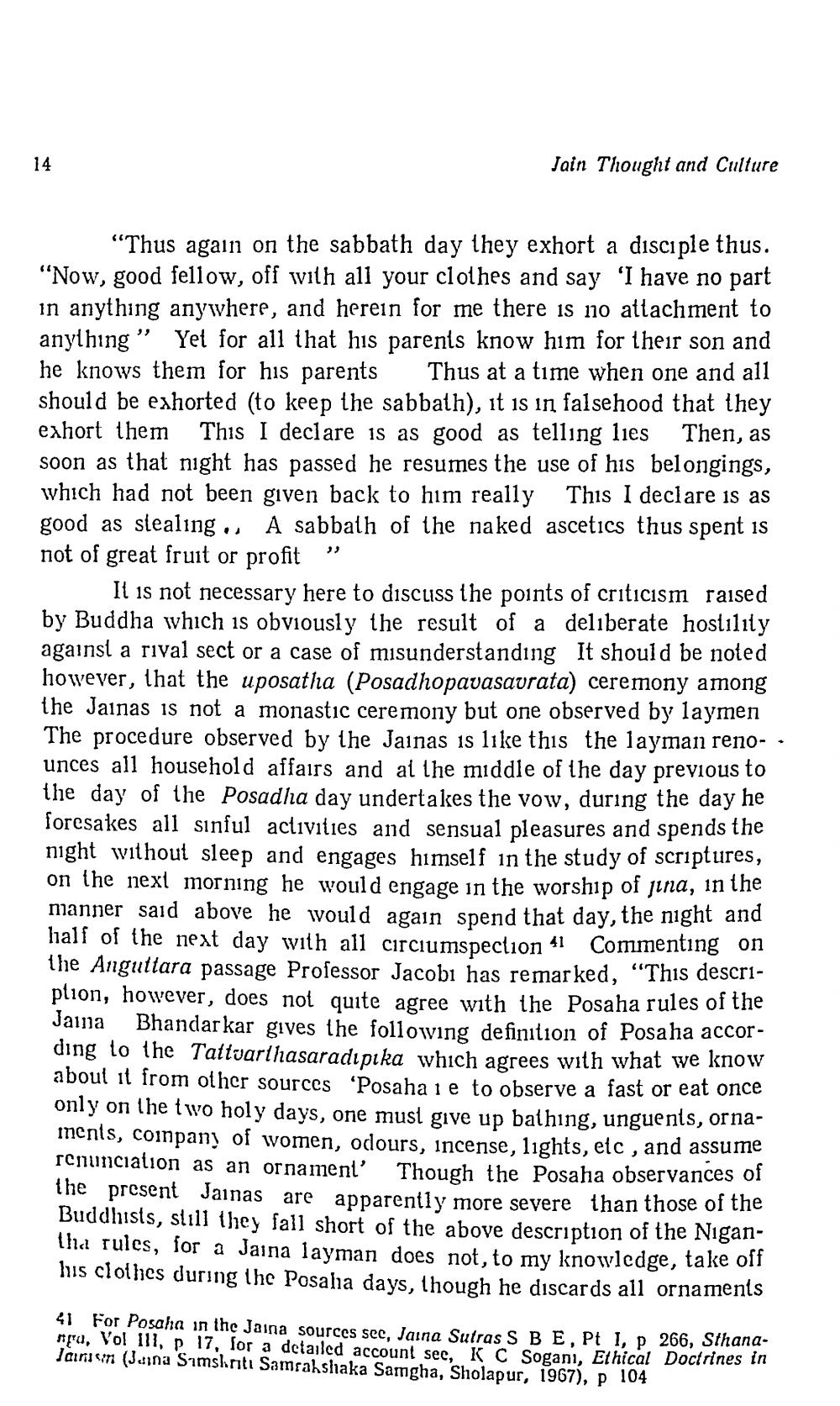________________
Jain Thought and Culture
"Thus again on the sabbath day they exhort a disciple thus. "Now, good fellow, off with all your clothes and say 'I have no part in anything anywhere, and herein for me there is 110 attachment to anything " Yet for all that his parents know him for their son and he knows them for his parents Thus at a time when one and all should be exhorted (to keep the sabbath), it is in falsehood that they exhort them This I declare is as good as telling lies Then, as soon as that night has passed he resumes the use of his belongings, which had not been given back to him really This I declare is as good as stealing. A sabbath of the naked ascetics thus spent is not of great fruit or profit"
It is not necessary here to discliss the points of criticism raised by Buddha which is obviously the result of a deliberate hostility against a rival sect or a case of misunderstanding It should be noted however, that the uposatha (Posadhopavasavrata) ceremony among the Jainas is not a monastic ceremony but one observed by laymen The procedure observed by the Jainas is like this the layman reno- . unces all household affairs and at the middle of the day previous to the day of the Posadha day undertakes the vow, during the day he foresakes all sinful activities and sensual pleasures and spends the night without sleep and engages himself in the study of scriptures, on the next morning he would engage in the worship of jina, in the manner said above he would again spend that day, the night and half of the next day with all circiumspection 41 Commenting on the Anguttara passage Professor Jacobi has remarked, “This description, however, does not quite agree with the Posaha rules of the Jauna Bhandarkar gives the following definition of Posaha according to the Tattvarthasaradıpika which agrees with what we know about it from other sources 'Posaha i e to observe a fast or eat once only on the two holy days, one must give up bathing, unguents, ornainents, coinpany of women, odours, incense, lights, etc , and assume renunciation as an ornament' Though the Posaha observances of the present Jainas are apparently more severe than those of the Buddhists, still they fall short of the above description of the Niganthe rules, for a Jaina layman does not, to my knowledge, take oll his clothes during the Posaha days, though he discards all ornaments
41 For Posaha in the Jaina sources sec, Jaina Sutras S BE. Pt I, p 266, Smart sa, Vol 11, p 17, for a detailed account sec. KC Sogani, Ethical Doctrines " Jain 71 (Jana Simskrit Samrah shaka Samgha, Sholapur, 1967), P 104




